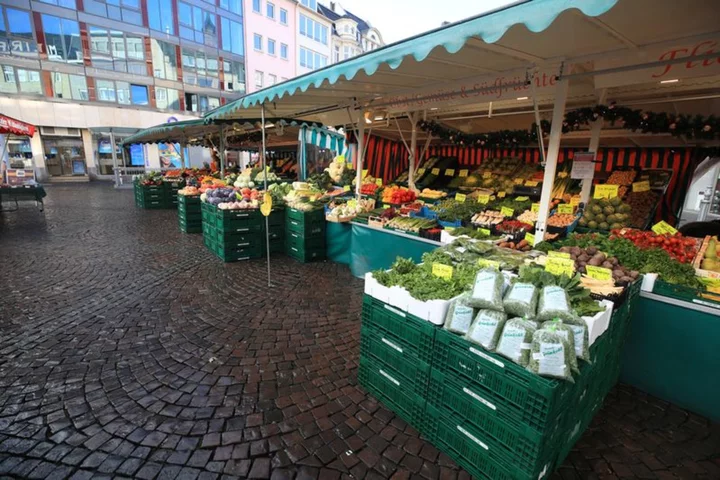By Maria Martinez
BERLIN Inflation eased in five economically important German states in the month of May, preliminary data showed on Wednesday, suggesting that national price rises are set to slow to their lowest in more than a year.
The inflation rate in North-Rhine Westphalia fell to 5.7%, while in Bavaria it slowed to 6.1%, in Brandenburg to 6.3%, in Hesse to 5.9% and in Baden-Wuerttemberg to 6.6%.
In April, inflation rates for those five states, out of 16 in Germany, had been between 6.8% and 7.6%.
National inflation data will be published at 1200 GMT, with economists surveyed by Reuters forecasting a 6.5% year-on-year rise. That would be the lowest level since April 2022.
Inflationary pressure has been eased by a new subsidised travel ticket, covering all local public transport for 49 euros ($54) per month.
Furthermore, the base effects from high energy and food prices in May 2022 will disappear from the year-on-year comparison.
National data so far suggests that euro zone inflation may have dropped more than expected in May and even underlying prices may have ticked down, supporting arguments for only cautious European Central Bank rate hikes in months ahead.
"Clearly the decline has been bigger than what was discounted by analysts and I think that is positive news," ECB vice president Luis de Guindos said on Wednesday.
The ECB has lifted rates by a record 375 basis points over the past year and has already committed to another move in June, leaving only subsequent tightening up in the air.
While many policymakers, including the influential chiefs of the German and Dutch central banks, have also put a July rate hike on the table, few if any are willing to discuss policy beyond that, arguing that inflation developments, particularly for core prices, will be key.
Core inflation, which filters out volatile food and fuel prices, has been stubbornly high in recent months, driven by increasingly rapid wage growth in services, and trends suggest that a major turnaround is likely only in the autumn.
($1 = 0.9084 euros)
(Reporting by Maria Martinez and Balazs Koranyi; editing by Matthias Williams and Andrew Cawthorne)

